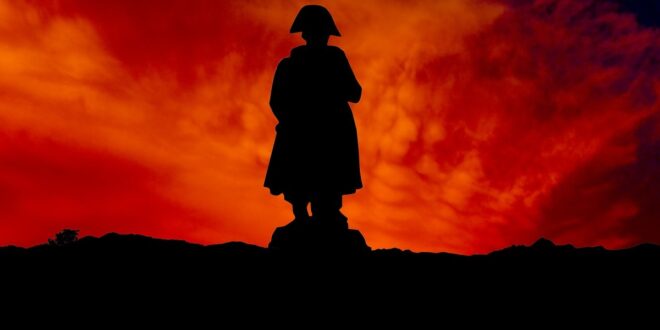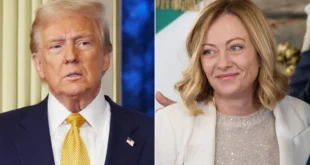At a time when Europe’s economy is reeling and the EU’s strategic heft is rather deplorable, Olaf Scholz, the German Chancellor, and Emmanuel Macron, the French President, should be intensely focused on collaborating. After all, both men are technocrats which should provide them with a common basis.
Unfortunately, they also trust their own intellectual power so much that they have a penchant for arrogance and quickly dismissing whoever does not buy into their line of thinking.
To his credit, Emmanuel Macron is adept at injecting emotionality into his appearances. He does this quite deliberately in order to be able to soften his arrogance. On top of that, Macron is personally also very fond of engaging in debates.
Olaf Scholz not only finds it very difficult to display any emotion. He also comes across with a level of monotony and pedantry that almost seems consciously intended to put anybody to sleep.
If the German Chancellor is truly challenged by a questioner in debate, Scholz instinctively switches to reeling off his arguments in the vein of a human steamroller, which at times makes him appear a touch autistic.
For Scholz, the buck stops … nowhere
For Scholz, there is one overriding problem: To this day – and in clear contrast to Macron – he has not shown himself capable of ever taking personal responsibility for any undesirable political development that occurred under his watch.
From mismanaging the disastrous and hyper-violent 2017 G20 summit in Hamburg to two major financial scandals (Cum Ex and Wirecard) that have his fingerprints all over them, Scholz has had his share of scandals.
Two men got lucky
What unites Scholz and Macron is not only their enormous confidence in their own intelligence. The pathway in which they became French President and German Chancellor, respectively, provides them with a strong autobiographical connection.
For Macron to become president, he basically had to crush France’s entire, long established party system. On that path, he faced a whole number of low-probability decision moments in his 2017 presidential election campaign. Astonishingly, they all turned out in his favor.
The rise of Olaf Scholz was not quite as unlikely as Macron’s phoenix-like rise. And yet, his 2021 election campaign faced very long odds. His SPD only had the support of 15% of the voters for much of the campaign.
Like Macron, Scholz is equipped with an apparently unshakable belief in himself. However, the biggest factor in helping Scholz make it to the top post was the self-destructive infighting among the potential candidates for chancellor presented by the then still governing CDU/CSU.
While Macron clearly ranks ahead of Scholz in terms of vision, the assumption all along was that Scholz was ahead of Macron with regard to government experience.
However, Macron benefits from the French presidential system, which gives a president wide latitude to shape the country’s political process. (Coincidentally, this is a system of government that Olaf Scholz might also secretly like).
A “progress coalition” in the Franco-German framework?
To give it a go with resuscitating the Franco-German motor, Macron even readily subscribed to the new Berlin theme of a “progress coalition” and saw it as a realistic option in the Franco-German framework.
From technological and social modernization, economic stimulus programs and a commitment to climate change, Scholz and Macron believed initially that they had plenty of common ground on the policy level.
The idea went nowhere, largely because the Scholz government all too often operates in a very narrow-minded, national frame.
Missed opportunity: Focusing on the other side of Napoleon
That was all the more regrettable as the overarching theme was right there for the taking: All that both men needed to do to create a common and unifying impression was to bring out the non-military side of the historic Napoleon.
Napoleon was not just, like Macron and Scholz, almost supernaturally convinced of himself and his leadership capabilities.
What is often forgotten today is how critical Napoleon, as a civic reformer, was de facto for the modernization of the two nations’ administrative and economic structures.
The de-feudalization brought about by Napoleon and his administrators laid the foundations first for the economic upswing of the bourgeoisie and then for a level of prosperity that gradually spread to other strata of the population. That modernizing spirit played out not just in France , but crucially also in Germany.
Unfortunately, Scholz and Macron never found a way to jointly shape the envisioned Franco-German coalition as an axis of modernization.
Quite the opposite. Instead of generating positive energy from their collaboration, they are now locking horns in almost any imaginable way. In that perverse duel, Germany’s Scholz is clearly the more intransigent one. He underscores almost every day that he stays true to his roots: The former mayor of Hamburg is a local politician at heart.
 Geostrategic Media Political Commentary, Analysis, Security, Defense
Geostrategic Media Political Commentary, Analysis, Security, Defense





